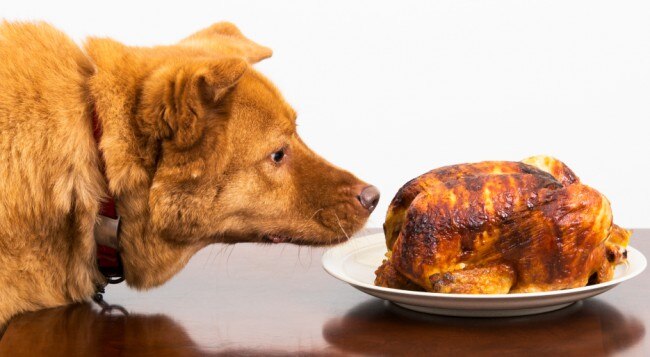Turkey, mashed potatoes and pumpkin pie – these are a few of our favorite things. The holidays are fast approaching, and anticipation is growing for the upcoming feast. Whether you’re cooking for two or ten, remember to save some festive treats for your furry family members. While a few traditional dishes are poisonous to dogs, others are canine-friendly and even healthy for them! Here are six drool-worthy seasonal staples both you and your dog can enjoy.
Cooked turkey and chicken
The focus of your holiday spread is sure to make your pup’s tail wag. Treating with turkey is a great way to get additional protein into your dog’s diet. Remove the skin and fat before offering the poultry to Fido, and do not share any cooked bones, which can splinter.
Potatoes
Whether mashed or sweet, your canine companion will love a good spud. If mashed potatoes are on the menu, only give them to your dog when they’re plain, before you’ve added butter, milk or salt. Many dogs prefer nutrient-rich sweet potatoes, so it’s okay to let Spot have a small helping. But don’t let him near the plate of candied yams!
Pumpkin
Who can say no to pumpkin pie? While you indulge in the seasonal delicacy, keep your four-legged friend away from the dessert table! However, pumpkin puree is great for your dog’s digestive health, and has been known to help ease minor symptoms of diarrhea and constipation.
Carrots
Glazed carrots might be your go-to vegetable over the holidays, but your dog should only enjoy the roots raw. Your fur-baby will love the sweet flavor and crunchy texture of carrots, and you’ll love that they’re eating a food high in vitamins and fiber.
Green beans
Loaded with healthy nutrients, green beans are a good treat because they’re filling but low in calories. Avoid the green bean casserole, though, as far as your dog is concerned. When it comes to canned beans, opt for a salt-free kind.
Apples
Sweet, juicy and crisp, apples are sure to become your pup’s favorite fruit. Core the apple and remove its seeds, which contain cyanide, before serving. A few seeds are unlikely to cause damage, but repeated exposure can lead to dangerous consequnces.

